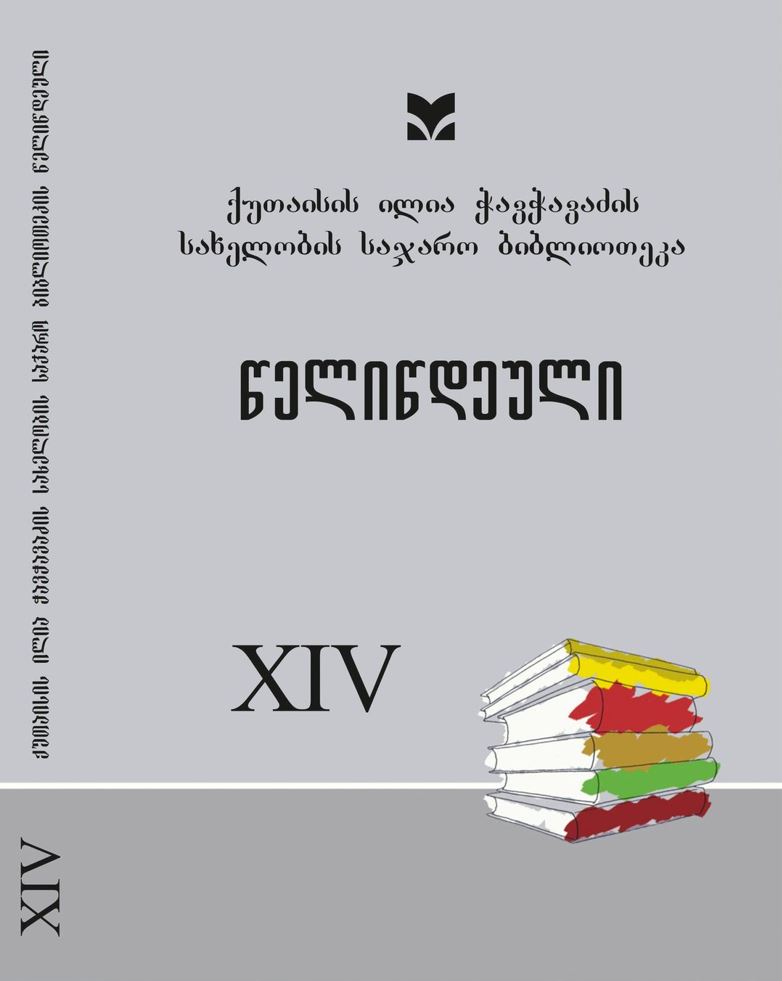მეგრული ლექსიკა აფხაზურში
DOI:
https://doi.org/10.61491/yk.14.2022.6971საკვანძო სიტყვები:
ქართულ-აფხაზური ენობრივი ურთიერთობები, ქართველური ლექსიკა, სუბსტრატი აფხაზურშიანოტაცია
The Abkhazian language exhibits a rich vocabulary, consisting of a considerable number of loanwords, including a significant amount derived from the Georgian language. This article focuses on the identification and analysis of Megrelian phonetic
elements observed in the Abkhazian lexicon, based on the work conducted by Prof. T. Gvantseladze in the development of the Abkhaz-Georgian dictionary. Examples of Megrelian loanwords in Abkhazian are provided, such as „a-máká“ in Abkhazian corresponding to „make“ in Megrelian, meaning „oilstone“, and „a-nŭš“ in Abkhazian corresponding to „niši/nəši“ in Megrelian, meaning „boat“.
According to Prof. T. Gvantseladze, given the historical presence of Georgians in the region of contemporary Abkhazia, it is reasonable to consider fragments of Georgian languages and dialects as a linguistic substrate within the phonological system of the Abkhazian language, particularly in various semantic domains of its vocabulary. However, alternative viewpoints expressed in scientific literature propose that a similar type of vocabulary in Abkhazian may have been borrowed from Megrelian. Taking into account the notion that „apxaza/apxazi“ (Abkhazian) refers to an ancient Kartvelian inhabitant of the region, and considering the perspective that the term itself has Georgian origins (apxaza meaning „apxaš zani“ or „mountain Zani“ in Megrelian, as suggested by A. Lomtadze and R. Sherozia), it further strengthens our position that the Georgian-derived lexical units identified in the Abkhazian language represent a substrate layer in the present-day Abkhazian linguistic landscape.
Further research is required to ascertain whether the identified lexical units persist in their current form within the Abkhazian language. If they are indeed found to be present, we can interpret them as borrowings from the Kartvelian language family.




